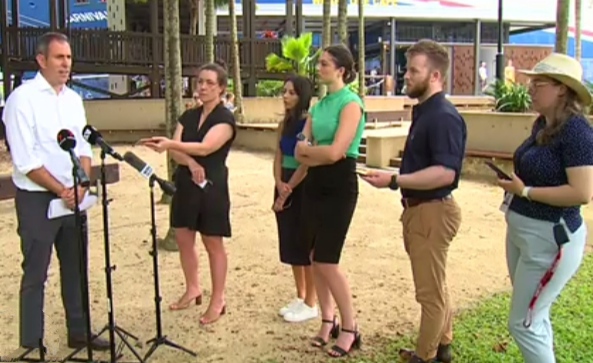While some economists anticipate a few interest rate cuts in the second part of the year, the International Monetary Fund (IMF) has urged the Reserve Bank to raise rates.
The international group stated that while the Australian economy was doing well overall, it was concerned about the country’s chronically high inflation rate and recommended raising interest rates.
“Monetary policy should be tightened further to ensure inflation comes back to target earlier than 2026 projected in the baseline,” according to the paper.
“The pace of further tightening needs to be calibrated based on incoming data and should consider the lags in the transmission of the effects of monetary policy.”
Although the study was finished on December 4, it was not disclosed until after the RBA decided to raise interest rates to 4.35 percent on Melbourne Cup day, as previously reported by ABS data last week, which showed lower-than-expected inflation for November.
According to those estimates, annual inflation is 4.3%, which is the lowest level since January 2022.
According to the IMF assessment, the economy has recovered from the pandemic better than that of other countries, although there are still dangers.
“Australia’s post-pandemic recovery remained strong,” it says.
“However, growth is weakening on the heels of tighter macroeconomic policies and financial conditions… increased cost of living (has) started to weigh on household consumption.”
Apart from increasing interest rates, the IMF recommended a reduction in government expenditure.
According to the research, “a tighter fiscal policy is needed to support disinflation.”
“Fiscal policy must strike an appropriate balance between supporting monetary policy – not adding to inflation pressures – in the near term and the necessary structural transformation over the long term.”
It did, however, commend the federal government for preserving a large portion of the enormous $21 billion budget surplus from the previous budget.
According to Treasurer Jim Chalmers, the study supported the government’s economic strategy.
“The report makes it clear that our government is doing better than other countries when it comes to getting our budget into much better condition as a buffer against the global economic uncertainty ahead,” he stated.
This is a positive validation of our efforts to combat inflation, fix the budget, and fund energy, housing, and skill development.
“Ours is a textbook combination of cost of living relief, budget repair, and investments in a stronger more modern economy.”





